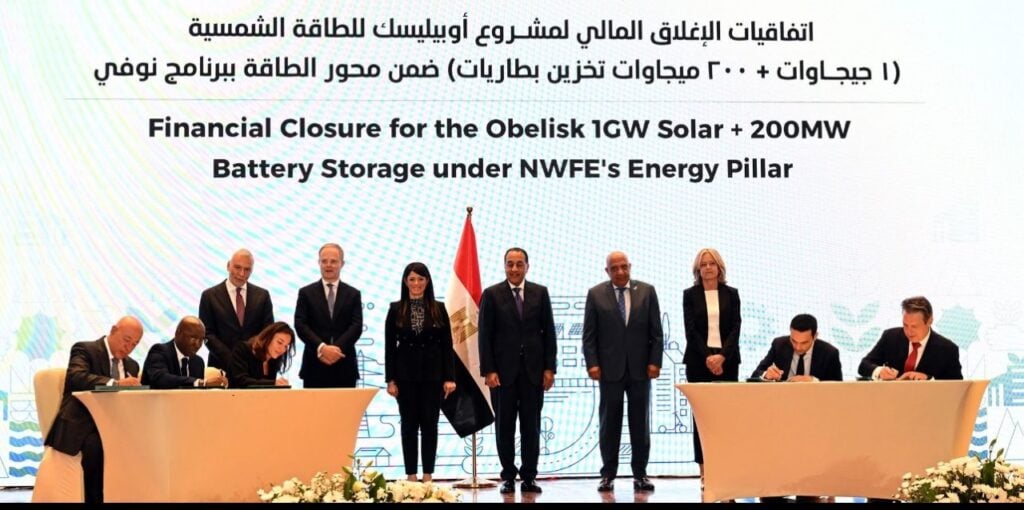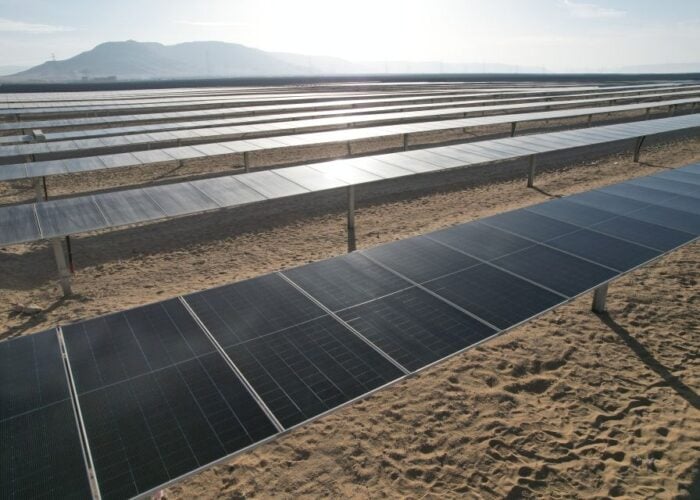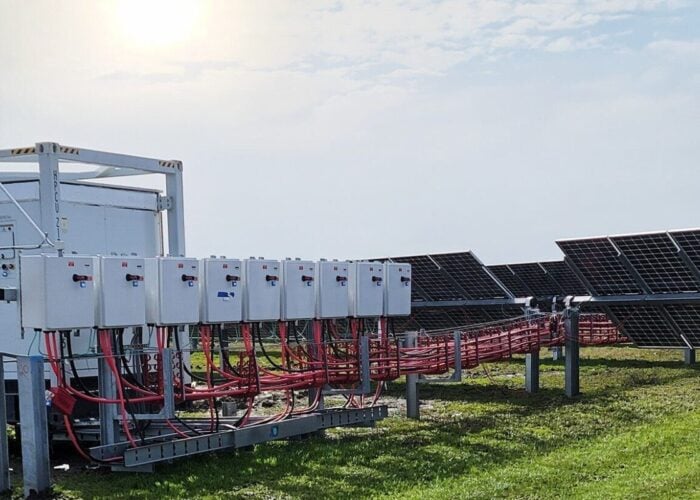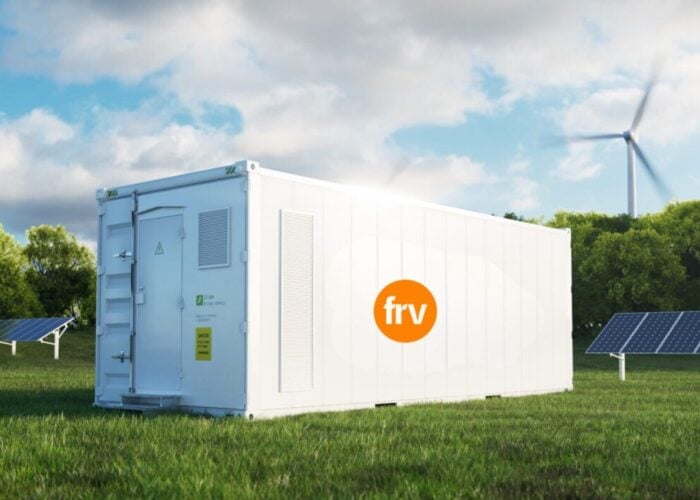
Independent power producer (IPP) Scatec has raised US$479 million for its Obelisk hybrid solar and battery storage project in Egypt.
The funding is being provided by the European Bank for Reconstruction and Development (EBRD), African Development Bank (AfDB), and British International Investment (BII). The total cost of the project is US$590 million, of which around 80% – or US$479.1 million – has been secured through financing. Previously, Scatec secured US$120 million in equity bridge loans (EBL).
Try Premium for just $1
- Full premium access for the first month at only $1
- Converts to an annual rate after 30 days unless cancelled
- Cancel anytime during the trial period
Premium Benefits
- Expert industry analysis and interviews
- Digital access to PV Tech Power journal
- Exclusive event discounts
Or get the full Premium subscription right away
Or continue reading this article for free
The 1.1GW/200MWh solar-plus-storage project will be built in two phases. The first phase includes 561MW of solar power and 100MW/200MWh of battery storage, targeting commercial operation in the first half of 2026. The second phase will add 564MW of solar capacity, expected to be operational in the second half of 2026.
Scatec CEO Terje Pilskog described the financial close as a major milestone and expressed pride in partnering with leading development finance institutions to advance Egypt’s clean energy goals.
Energy generated will be sold under a 25-year power purchase agreement (PPA) with the Egyptian Electricity Transmission Company (EETC), supported by a sovereign guarantee. The Oslo, Norway-headquartered Scatec will provide engineering, procurement and construction (EPC), asset management, and operations and maintenance (O&M) services for the project. The EPC portion, handled directly by Scatec, accounts for roughly 70% of the total project capital expenditure.
In March 2025, the firm signed a 25-year PPA with Egypt Aluminium for the project. At the time of the announcement, Scatec revealed plans to reduce its full ownership by bringing in equity partners. The deal supports Egypt Aluminium – Egypt’s largest industrial power consumer – in meeting EU’s Carbon Border Adjustment Mechanism (CBAM) rules ahead of 2026.






